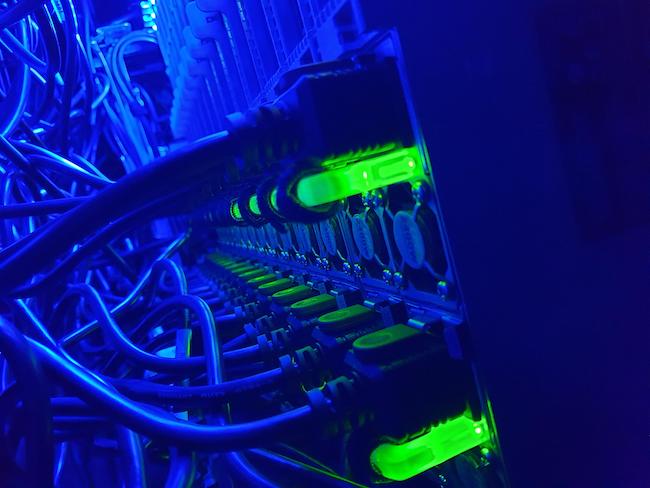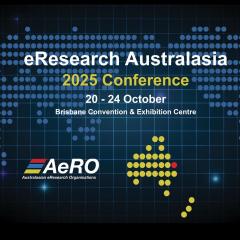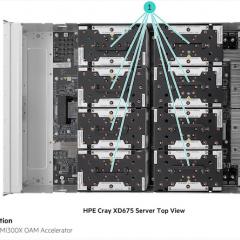 As part of an ongoing collaboration, IBM has recently provided the University of Queensland with a number of novel hardware platforms for experimentation and evaluation.
As part of an ongoing collaboration, IBM has recently provided the University of Queensland with a number of novel hardware platforms for experimentation and evaluation.
To date, RCC has deployed multiple IBM storage 'caches' that underpin the University’s unique campus-wide MeDiCI data fabric.
Based on IBM’s Spectrum Scale product, MeDiCI provides seamless access to data collections, regardless of whether they are used on workstations, laptops, supercomputers or scientific instruments. Importantly, it supports the bulk of the storage volume for data collections in the University’s Research Data Manager (UQRDM) system, which is housed in the Polaris Data Centre in Springfield.
In its most recent hardware contribution to UQ, IBM will install:
- A new ultra-dense storage system that can hold more than 2 PB of data. This yet-to-be-released system will underpin a new product range from IBM, leveraging very high-performance next-generation technology. UQ will work with IBM to deploy the system on campus and will test it in a variety of data-intensive research projects using UQ’s Wiener supercomputer.
- Two HPC nodes based on the US Department of Energy’s Summit supercomputer system design. (Summit is currently the world’s fastest supercomputer.) The nodes consist of four nVidia Volta GPUs and two Power9 CPUs. This system will provide UQ with a diverse architecture option for applications in machine learning and artificial intelligence and will complement HPC Wiener. The Power9 CPUs in these new nodes potentially double the bandwidth available between GPU and CPU interconnects, compared to existing x86-based supercompute nodes, such as those found in Wiener.
- An Elastic Storage System 3000 (ESS 3000) — an all-flash memory-based device capable of very high-performance input/output. For the technical minded, the system will deliver more than 42 GB/sec of parallel filesystem I/O and 1,200,000 4k IOPS, which is more than two times faster than the existing file servers attached to RCC's supercomputers. The ESS 3000 comes with two Power9 class ‘protocol’ nodes to provide very high-throughput file serving capability for special ingest workloads or scratch filesystem tasks where extremely low latency and high-throughput are required. RCC will test this system as a bridge to high-performance scientific instruments and microscopes that also require HPC.
RCC Director Professor David Abramson said IBM was interested in partnering with UQ as RCC had developed a reputation for stretching existing technologies.
“We have already demonstrated significant innovation in applying Spectrum Scale at the University. We have been able to provide feedback on how well it works in our environment and where it can be enhanced,” said Prof. Abramson.
“I’m very excited to be able to test IBM’s other leading-edge hardware on our most demanding research needs.”
Jason Price, Director and General Manager IBM Systems, said: "IBM has a long history in research and development, and is one of the largest research organisations globally. We look for opportunities to become more than just a supplier, but a trusted advisor and partner in delivering outcomes.
"The opportunity to work with the University of Queensland builds on our own research skills and expertise and offers an opportunity to use this expertise, as well as our leadership in scale-out storage solutions, to assist organisations like UQ in tackling the challenges of extreme data growth and data insight.”
RCC users who can see potential for these systems to support their research should contact RCC Chief Technology Officer Jake Carroll.



